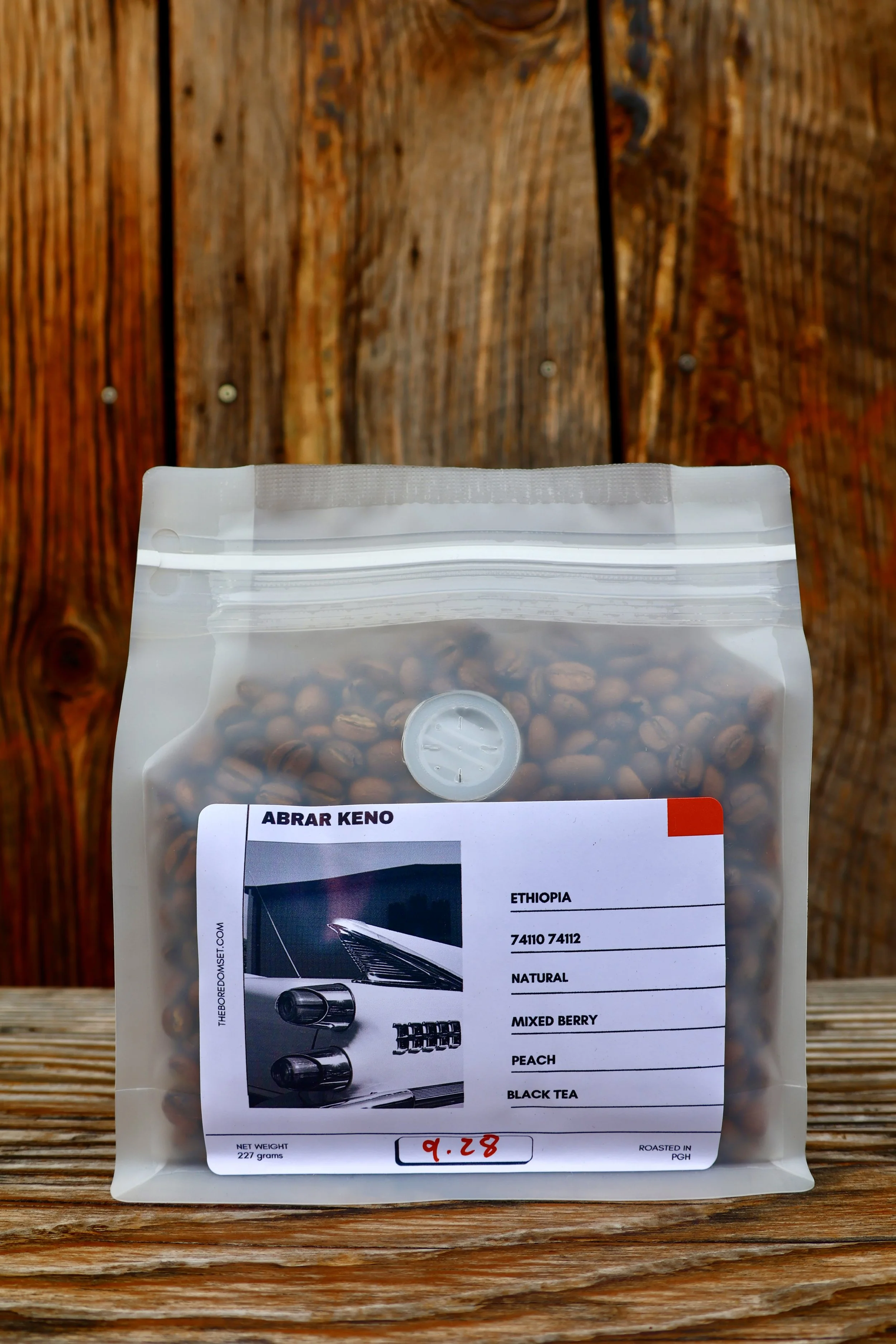 Image 1 of 2
Image 1 of 2

 Image 2 of 2
Image 2 of 2



Abrar Keno, Ethiopia
Abrar Keno & The Tokuma Group — Jimma, Ethiopia
In Beshasha, Jimma, Abrar Keno tends his second-generation farm at 1,950–2,150 masl. 2025 is his first year producing naturals on his own — slow-dried on raised beds for about three weeks, carefully measured for consistency. He’s already looking ahead, planning to add washed processing to broaden what he can share.
Abrar’s story is also the story of Tokuma. What began as neighbors helping each other has grown into a collective of smallholder farmers across Jimma’s Agaro region. Together, they’ve turned shared knowledge and resources into a model built on quality, traceability, and resilience.
The challenges remain familiar: fluctuating cherry prices, unpredictable weather, and navigating international markets. But Tokuma farmers, like Abrar, face them with pragmatism and care. Fertilizers get shared, risks are spread, and progress comes step by steady step.
Thanks to recent changes in Ethiopia’s export laws, producers like Abrar now bypass the old commodity system and sell directly — gaining recognition for their craft and earning more sustainable returns. Tokuma’s partnership with Osito Coffee has only strengthened this, providing stability and long-term support.
What we taste in Abrar’s coffee — and Tokuma’s work as a whole — is more than process or variety. It’s the result of collaboration, patience, and a community moving forward together.
Abrar Keno & The Tokuma Group — Jimma, Ethiopia
In Beshasha, Jimma, Abrar Keno tends his second-generation farm at 1,950–2,150 masl. 2025 is his first year producing naturals on his own — slow-dried on raised beds for about three weeks, carefully measured for consistency. He’s already looking ahead, planning to add washed processing to broaden what he can share.
Abrar’s story is also the story of Tokuma. What began as neighbors helping each other has grown into a collective of smallholder farmers across Jimma’s Agaro region. Together, they’ve turned shared knowledge and resources into a model built on quality, traceability, and resilience.
The challenges remain familiar: fluctuating cherry prices, unpredictable weather, and navigating international markets. But Tokuma farmers, like Abrar, face them with pragmatism and care. Fertilizers get shared, risks are spread, and progress comes step by steady step.
Thanks to recent changes in Ethiopia’s export laws, producers like Abrar now bypass the old commodity system and sell directly — gaining recognition for their craft and earning more sustainable returns. Tokuma’s partnership with Osito Coffee has only strengthened this, providing stability and long-term support.
What we taste in Abrar’s coffee — and Tokuma’s work as a whole — is more than process or variety. It’s the result of collaboration, patience, and a community moving forward together.